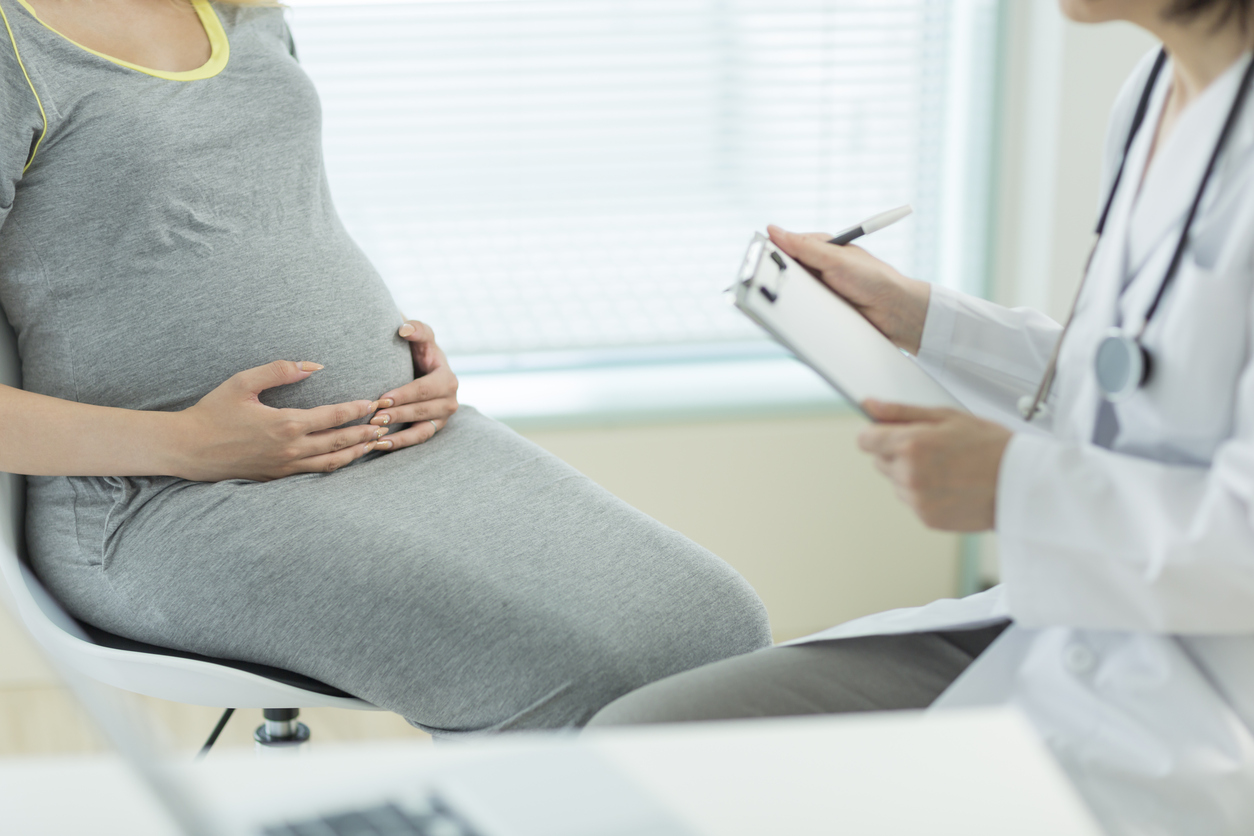Short Answer – Bleeding during pregnancy is common (particularly in the first trimester) and it may be no cause for alarm….HOWEVER, bleeding can sometimes indicate a serious issue. You should always report it to your doctor immediately.
If you notice you are bleeding, wear a pad or panty liner so you can see how much you are bleeding, along with the color of your blood. Is it light pink, red, brown? Report this to your doctor. Do not insert a tampon or engage in sex if you’re experiencing any bleeding.
If you are bleeding and experience any of the following symptoms, go to the ER or call 911 right away as it might indicate a miscarriage or other serious problem.
Call 911 Or Go To ER If You Experience:
- Severe bleeding
- Severe pain or cramps
- Discharge containing tissue (save the tissue if you can for the doctor to test)
- Severe dizziness or fainting
- Fever over 100.5 degrees
First Trimester Bleeding
Studies show that 20-30% of women will experience some bleeding during their first trimester. Many women at this stage immediately fear miscarriage or ectopic pregnancy, which are both a possible cause of early bleeding. You definitely want to get checked out by your healthcare provider. But keep in mind that first trimester bleeding does not necessarily mean you’re going to miscarry.
Approximately half of pregnant women that bleed do not miscarry. More blood flows to your cervix during pregnancy which means things like a PAP test or sexual intercourse may also cause (harmless) bleeding. An infection, unrelated to the pregnancy, may also be a cause – so bottom line, don’t panic and see a doctor to be sure.
Second And Third Trimester Bleeding
Bleeding in the second and third trimester is more rare, and potentially more serious as it could indicate placenta previa or placenta accreta, placental abruption (in which the placenta separates from the uterus), a late miscarriage, or premature labor (which can happen between mid-pregnancy and 37 weeks).
Again, contact your doctor right away or get to the ER if you are experiencing any of the emergency symptoms described above.












